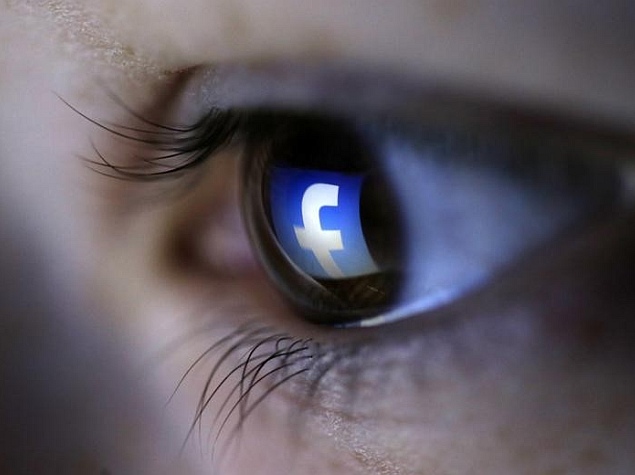- Home
- Social networking
- Social networking News
- Study Finds Why We Browse Facebook When We Feel Like Taking a Break
Study Finds Why We Browse Facebook When We Feel Like Taking a Break

Scientists claim to have found why social networks such as Facebook are such a popular diversion for people who feel like taking a break.
Even when we are resting, our brains are preparing us to be social, according to a new study by psychologists from the University of California, Los Angeles.
The study sheds light on why social networks such as Facebook are such a popular diversion for people who feel like taking a break, researchers said.
"The brain has a major system that seems predisposed to get us ready to be social in our spare moments," said Matthew Lieberman, a UCLA professor of psychology and of psychiatry and biobehavioural sciences.
The research, published in the Journal of Cognitive Neuroscience, shows that during quiet moments, the brain is preparing to focus on the minds of other people - or to "see the world through a social lens," said Lieberman.
In experiments at UCLA's Ahmanson-Lovelace Brain Mapping Center, the researchers showed photos with captions to 21 people, and tracked their brain activity using functional magnetic resonance imaging, or fMRI.
Most of the photos showed people performing actions in a social setting and expressing a certain emotion. In one set of 40 photographs, images were paired with captions that reflected the person's mental state.
The second set of photos had identical images, but with captions that merely described what the person was doing - "He is resting his head" or "She is looking to her side."
A third set of images depicted a number accompanied by a simple mathematical equation.
Participants were asked to judge whether the captions accurately expressed what the images showed.
The same regions of the brain that were active during the brief times that subjects were not looking at photos were also active when the participants were considering the photos with captions about people's emotions.
But those areas of the brain were not active when the participants were viewing the cards with captions about the person's physical activity and those with the math equations.
Sometimes, a part of the brain called the dorsomedial prefrontal cortex was more active during the rest period immediately before participants were asked to look at photos.
In those cases, the participants made significantly faster judgements if the next photo they saw presented a statement about the person's mental state.
The findings suggest that the dorsomedial prefrontal cortex might turn on during dreams and rest in order to process our recent social experiences and update our assumptions and understanding of the social world, Lieberman said.
So although Facebook might not have been designed with the dorsomedial prefrontal cortex in mind, the social network is very much in sync with how our brains are wired, he said.
"When I want to take a break from work, the brain network that comes on is the same network we use when we're looking through our Facebook timeline and seeing what our friends are up to," said Lieberman.
Catch the latest from the Consumer Electronics Show on Gadgets 360, at our CES 2026 hub.
Related Stories
- Samsung Galaxy Unpacked 2025
- ChatGPT
- Redmi Note 14 Pro+
- iPhone 16
- Apple Vision Pro
- Oneplus 12
- OnePlus Nord CE 3 Lite 5G
- iPhone 13
- Xiaomi 14 Pro
- Oppo Find N3
- Tecno Spark Go (2023)
- Realme V30
- Best Phones Under 25000
- Samsung Galaxy S24 Series
- Cryptocurrency
- iQoo 12
- Samsung Galaxy S24 Ultra
- Giottus
- Samsung Galaxy Z Flip 5
- Apple 'Scary Fast'
- Housefull 5
- GoPro Hero 12 Black Review
- Invincible Season 2
- JioGlass
- HD Ready TV
- Laptop Under 50000
- Smartwatch Under 10000
- Latest Mobile Phones
- Compare Phones
- Honor Magic 8 RSR Porsche Design
- Honor Magic 8 Pro Air
- Infinix Note Edge
- Lava Blaze Duo 3
- Tecno Spark Go 3
- iQOO Z11 Turbo
- OPPO A6c
- Samsung Galaxy A07 5G
- Lenovo Yoga Slim 7x (2025)
- Lenovo Yoga Slim 7a
- Lenovo Idea Tab Plus
- Realme Pad 3
- Moto Watch
- Garmin Quatix 8 Pro
- Haier H5E Series
- Acerpure Nitro Z Series 100-inch QLED TV
- Asus ROG Ally
- Nintendo Switch Lite
- Haier 1.6 Ton 5 Star Inverter Split AC (HSU19G-MZAID5BN-INV)
- Haier 1.6 Ton 5 Star Inverter Split AC (HSU19G-MZAIM5BN-INV)







![[Sponsored] Haier C90 OLED TV | Dolby Vision IQ, 144Hz OLED and Google TV in Action](https://www.gadgets360.com/static/mobile/images/spacer.png)









